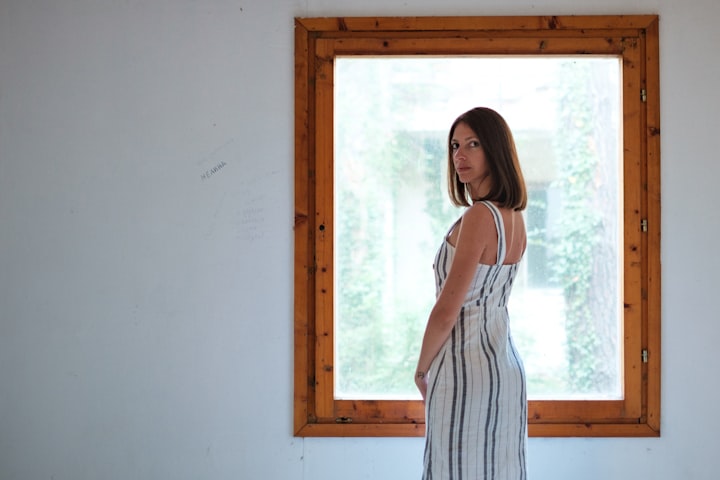
Every day, he wore the mask. Ever since the sickness came, whether it was from ships or from the battles the prince and his many armies brought home, no one could, or would, say.
But ever since it came to his land, a place green and filled with hills, the doctor wore the mask.
He wore the mask—large, birdlike, with a beak filled with dried summer flowers that still hinted when they were gathered—every day for his work. To every village, to every home. To every place where his bag would attempt to heal, and his cart would load the dead.
The cart worked harder than the bag, in every village that he walked to. Whether the people left spoke the words of the king, the lofty tongue of the church, or the language of the land, an ancient tongue that sounded like gentle hammers bending and hitting steel. Whether it was a wealthy village, attached to a fat stone manor surrounded by untilled fields, or a small hamlet with barely more than a few thatched homes. He went in to all, saw that he could not help, and instead of placing of herbs into eager hands to heal and letting of bad blood, he took the dead.
From the different homes, the stone and the wattle, the thatched roofs, and the wooden frames, he would walk with the cart to the pit.
When the pond was frozen, and all the wild birds had flown to warmer places. His grandfather, before being buried in the pit, told him of winters when the pond would not freeze during his childhood. But, for the last few winters, the pond was always frozen until the spring.
But this time, this new sickness, it was different then an old man’s cough or a child’s fever. This illness took all, like the new scythes the doctor had seen some of the peasants using in the fields the summer before.
Yes, the children died, still wrapped in the arms of their mothers and fathers, and now sometimes their elder sisters and brothers if the parents had died before them. The children, their little, round faces black and green with rot would be gently pried from their homes and wrapped in a shroud, should the doctor still have one or two, and put into the back of his cart.
More often than the doctor would have liked, there were no shrouds left in his cart for the dead. So, the bodies—from the smallest child to the frailest grandmother--would be stacked on top of one another, their eyes, and mouths open, the blackened sores on their bodies open and draining on top of one another in a festering pile of rot. The foul-smelling sores across once strong arms, filled with black bile, faces gaunt and feverish, taken from their homes and placed in his waiting cart outside, with no priest to accompany them to the churchyard or mourning to follow them.
Sometimes, there would be one survivor in a house. The worst were old who were not laying dead next to their families, simply left to themselves, muttering alone in the houses that once were filled with laughter and scolding, the ghostly scent of bean soup cooking on the fossilized remains of a hearth.
Other times, the sick would still be alive, which once gave the doctor hope. And he would nod, and wrap sickly limbs in bandages and make small cuts on arms and legs and faces to let out the bad blood. He’d pray with them. Then he’d ignore the shrieks as he walked away from their houses.
They began to sound the same, in house after house, village after village. Begging not to leave them, for they were the only ones left after black bile and fever had taken their families, their neighbors, everyone they had ever known in their village, in this world.
How they sound like the birds as they fled the frost of winter, he thought to himself as he pushed the cart, keeping his oil-covered cloak off the snow-covered ground.
The doctor thought of the pond, cold now, as if the water would predict how many would be dead across the countryside. They were dying less now, in the winter, but whether that was because of the cold or because there were few left, he could not answer.
He was almost there, the pit, where his day often ended. That pit, it was not like the churchyards, neatly tended places where the dead would be buried next to the stone houses of God where celebrations were had, and mass was heard. No.
The pit was a neat stack in the fields behind his village church, where wheat had once grown, and ploughman had grumbled behind their draft horses. It was not the loved gardens of the dead next to the church, where people like his father and fathers’ father had been buried.
There was no whisper of God here, this pit, where bodies would be placed next to each other, like so many pieces of wood, their faces black and filled with fluids too evil to even think of, where the doctor’s herbs and bloodletting had failed again and again. Quick prayers were daily said over these bodies by the priests that remained, dirt thrown over them, and then more—the old and the young and the ones in between--would be carried to the pit the next day.
The priests who said the prayers often joined the ranks of the dead soon after, tossed into the pit where they had once prayed. Meanwhile, the doctor and his bird mask and his cart did not. And they would continue their work.
Walking through the empty village now, the doctor thought of the pond, in the woods behind the church, and he thought of her. For the pond was where they first made love, after their parents agreed they’d be married shortly after a long day of arguing and bartering and laughing.
The sun had risen, more then a year ago, above the doctor and his soon to be wife. Though the morning was cool, they were kept warm under his cloak, after a night of tumbling and touching, kissing and lovemaking. The dawn reflected the pond, red and pink, the color of his love’s cheeks and breasts, laying across his bare chest. He had never felt warmer, or more love, or more peace.
Soon after, they exchanged vows at the church, surrounded by their families and friends in their town. Once again, they snuck off to the pond, while the wedding party was held in the church yard, filled with drinking and dancing. This time, they merely held each other, filled with the heat of love, and hope, of the sunset on their wedding day. Her hair smelled like fresh flowers and sunshine from the fields, and if he closed his eyes, the beak in his mask hinted at the smell still.
His wife wore a new kirtle made of the palest blue, the color of a new frost, on their wedding day. It had been brought from France, where the merchant in the town next to theirs claimed it was the latest fashion, taken from a knight who had brought back many such fashions from the latest war there, a place called Gascogne. She was so excited to wear it on their wedding day, she did not even bother to wash it, trusting the merchant on the cleanliness of his wares.
Neither he nor she cared about the few small fleas she found in it, for they were used to them. They all were, in their village and beyond.
The doctor began wearing the mask after he placed her body in the ground, his love, for she had been one of the first to die of this illness.
He remembered her red hair, the color of a sunset, pale cheeks, soft shoulders he loved to kiss in the morning. But horror filled them both, even in his memories, when she woke up one morning, blood around her mouth and black filled sores under her beautiful white arms.
She wept loudly, and saw it as a sign from God, that this was His judgement for sinning, for making love before they were properly married in the church. He told her, wiping her tears that day, that was not true, and he would find a way to balance her humors, take the bad blood out, and be healthy once more. They’d lay beside the pond after she was well and out of bed, and watch the sun rise again.
By the time he had tried to give her a tincture of herbs on her sores and cut into the black sores on her white legs, she had stopped breathing. Her bright eyes rolled back, and her body stiffened as he screamed, begging her to stay with him. The villagers working in the fields beyond had to pry her body from his arms and crossed themselves as he bawled, agony overtaking him as they took her away.
But that was in the summer when the sickness began, and for some reason, be it God’s will or his mask, it bypassed the doctor. But it took everyone else—his parents, the other villagers, his love with her red, red hair.
It was now winter. The pond that they loved by was frozen. And the village was silent, except for the tolling of church bells every night, to symbol all that had been buried that day.
The doctor now laid the latest of the dead in the almost frozen ground, old and young alike. Last to be placed was a young child with their father’s sore-covered arms, black and stinking, draped over her, in the pit. She too, had red locks gently curling out of her little white cap, covered in dirt as the doctor buried them.
He then moved his empty cart to the church yard, and gently set it down. Unhitching the donkey that carried it to the little stable next to the church, the doctor brought it to its stall, and gave it a large helping of oats for its supper. He stroked its ears through his gloved hands. This is a loyal beast that belonged to the church and to God, he thought, it deserves a fine meal. It has never sinned.
In the silence of the barn, the doctor, finally, took off the mask. He sighed, his breath creating mist in the cold air. The mask dropped from his face onto the floor. His face was now covered with a beard, thick and brown, for he had not shaved since she had died. He closed his eyes. His wife’s hair had been the color of the sun, and he, merely that of the earth that covered her.
The stench of the dead in the pit overcame the smell of the dried flowers in his mask, the gentle heat of the donkey, even the dung in the barn.
The doctor began to walk towards the woods, behind the church yard. His oil covered cloak dragged behind him, like a raven’s wings across a winter’s sky.
The frost crunched under his leather shoes as he walked through the woods, away from the smell of the pit and the barn and the mask.
The pond waited for him.
About the Creator
Kris Berg
Midwesterner, writer, lover of coffee.






Comments
There are no comments for this story
Be the first to respond and start the conversation.